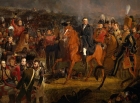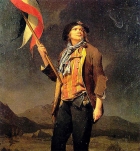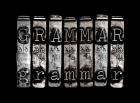Cause and consequence
While E.H. Carr’s claim that ‘all history is the history of causes’ may have been widely challenged by historians anxious to demonstrate the breadth of their concerns and the range of other important questions to be asked about the past, causal explanation features prominently in history teaching and learning at all stages within the school curriculum. The resources in this section will help teachers to think about the nature of progression in students’ understanding of cause and consequence and to recognise common misconceptions that they may need to address. The materials offer a wide range of practical strategies, as well as insights drawn from historians’ practice and research into students’ understanding, that will help teachers to determine the most useful ways of helping students to develop more powerful causal explanations. Some of them also highlight the need to pay more attention in planning schemes of work to the identification, explanation and evaluation of historical consequences. Read more
-

Assessing the Battle of Waterloo in the classroom
ArticleClick to view -

Being ambitious with the causes of the First World War: interrogating inevitability
ArticleClick to view -

Building an overview of the historic roots of antisemitism
ArticleClick to view -

Camels, diamonds and counterfactuals: a model for teaching causal reasoning
ArticleClick to view -

Causation maps: emphasising chronology in causation exercises
ArticleClick to view -

Changing thinking about cause
ArticleClick to view -

Competition and counterfactuals without confusion
ArticleClick to view -

Couching counterfactuals in knowledge when explaining the Salem witch trials with Year 13
ArticleClick to view -

Counterfactual Reasoning: Comparing British and French History
ArticleClick to view -

Dealing with the consequences
ArticleClick to view -

Deepening Year 9’s knowledge for better causation arguments
ArticleClick to view -

Does scaffolding make them fall? Reflecting on strategies for developing causal argument in Years 8 and 11
ArticleClick to view -

Does the grammatical ‘release the conceptual’?
ArticleClick to view -

Does the linguistic release the conceptual? Helping Year 10 to improve their casual reasoning
ArticleClick to view -

Film: What's the wisdom on... Causation
ArticleClick to view -

Film: What's the wisdom on... Consequence
ArticleClick to view -

Finding the place of substantive knowledge in history
ArticleClick to view -

From flight paths to spiders’ webs: developing a progression model for Key Stage 3
ArticleClick to view -

Historical Causation: Is One Thing More Important Than Another?
ArticleClick to view -

Holistic assessment through speaking and listening
ArticleClick to view

